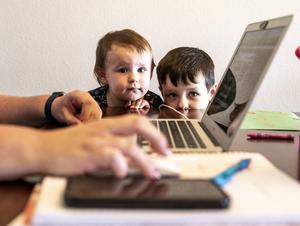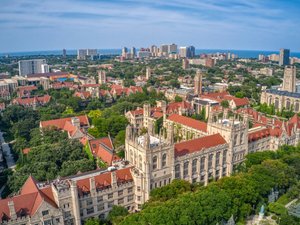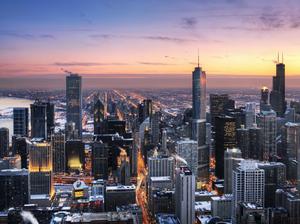The Hyperloop began as a moonshot idea from billionaire tech executive Elon Musk, whose initial plan in 2012 envisioned a tubular transportation system that could move people and freight from L.A. to San Francisco in just 35 minutes.
The Tesla founder has at times appeared obsessed with traffic (he’s also proposed an underground transportation system that could zip cars beneath busy L.A. highways), and the high-speed transit system has been seen as a major transportation innovation for a part of the country that’s plagued by vehicle congestion.
But Musk has open-sourced the Hyperloop concept, and the possibility of super-fast transit has started to take shape for more than just businessmen and tech CEOs needing a quick trip from L.A. to Silicon Valley.
In the Midwest, a Hyperloop proposal is moving forward that would connect Chicago to Pittsburgh in just 47 minutes. Dubbed Midwest Connect, it’s part of call for proposals by Hyperloop One, a startup founded in 2014 that’s raised $160 million to bring Musk’s vision to life (though the company is not officially affiliated with Musk).
Spearheading the Midwest route is the Mid-Ohio Regional Planning Commission (MORPC), a business group in Columbus that has designed the Hyperloop proposal with a stop through the Ohio capital. The plan would allow for a trip from Chicago to Columbus in just 29 minutes, and from Columbus to Pittsburgh in less than 20. The Midwest Hyperloop proposal was recently selected as one of 35 worldwide finalists in Hyperloop One’s global challenge, which saw more than 2,600 proposals in cities from the US to Amsterdam to Australia.
The plan has the potential to revolutionize travel in the Midwest, and boost the Columbus economy by easily connecting its business community to both Chicago and Pittsburgh. The group has specifically been looking for ways to connect to Chicago for several years, and jumped at the opportunity with Hyperloop One.
“People here get really excited about connecting to Chicago,” said Thea Walsh, MORPC's director of Transportation Systems and Funding.
For obvious reasons, the Hyperloop has the chance to fundamentally change the way we think about cities, and where we choose to live and work. With a less than 30 minute commute, one could live in Columbus and work in Chicago, spending less time in transit than most people commuting to Chicago from the suburbs today. A mom whose job transfers her from Columbus to Chicago wouldn't have to uproot her family. A student could study at DePaul and still live at home with her parents in Ohio. A Chicago-based business could set up an office in Pittsburgh and send executives there daily with little effort.
But a Midwest Hyperloop route has implications far beyond where people choose to live and work, Walsh explained. Think about how healthcare could improve when a patient in rural Ohio can see a specialist in Pittsburgh without having to drive for hours or buy a plane ticket. Doctors in large cities could be rushed to rural towns for emergency procedures. Organs needed for a transplant could be shipped from Pittsburgh to Columbus in just 18 minutes--not even Amazon could pull that off.
Food deserts could be eliminated by getting fresh produce that's grown in rural Midwest to cities across the US. Cities could send disaster aide to towns ravaged by tornados. Someone in Chicago could get a Primanti Bros sandwich in about the time it takes for a normal Grubhub order to arrive.
Midwest Connect predicts that, if constructed, a Hyperloop system could transport nearly 2 million people and $3.8 billion worth of cargo annually through the area.
But a system of Hyperloops in the Midwest, or anywhere else for that matter, remains far from a reality. Midwest Connect is one of 11 US projects and among 35 global proposals that Hyperloop One is evaluating, and the company will ultimately whittle them down to just three. Those three teams will work closely with Hyperloop One's engineers and developers to explore project development and financing.
And experts are skeptical that the Hyperloop can even work at all. The concept requires people or cargo to be loaded into a pod and travel by electric propulsion through a low-pressure tube. The pods are lifted above the track via magnetic levitation and glide at speeds of roughly 750 MPH over the course of hundreds of miles. Experts are concerned about things like safety, how much energy it would require to run the Hyperloop, and the astronomical cost it would take to develop and construct. Scientists have called the project "completely impractical,” although they acknowledge that the concept is theoretically feasible.
The Midwest Connect team feels fortunate to have gotten as far as they have in the competition, but they aren't content with settling for a consolation prize, Walsh said.
"We’re pumped and we’re ready to move on," she said. "We’ve had our opportunity to present to [Hyperloop One]. We feel good about that. We have a lot of supporters both in town and throughout the corridor. We’re ready to continue."
But regardless of whether or not Midwest Connect moves on, Walsh said the city of Columbus has made major strides in connecting with government and business officials in both Chicago and Pittsburgh, and expects to continue to improve transportation between the three cities, whether it's by car, rail, or yes, even Hyperloop.
"This connection for Columbus, and making connections to Columbus with other cities, is something we’re going to keep working on," she said.
Images via MORPC and Hyperloop One








